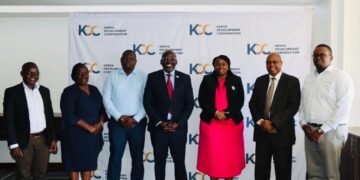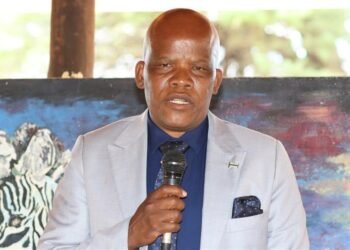The Federal Inland Revenue Service has recorded an all-time high tax revenue collection of N5.23 trillion in 2018, with Value Added Tax (VAT) at N1.11 trillion for the first time.
Proceeding to 2018, the highest revenue figure ever accomplished by FIRS was N5.07 trillion, in 2012, when oil price hovered around $100-$120 per barrel, but now remarkable, given that it was achieved at a period when oil prices averaged $70 per barrel.
Besides, the Service will be expanding its dragnet and tightening noose against tax evaders, as there are indications that it would be given an N8trillion target this year.
The Chairman of FIRS, Dr. Babatunde Fowler, who made the disclosure during the 2019 Management and Stakeholders Retreat, in Lagos, yesterday, said the N8 trillion targets is being finalized, but assured of the readiness of the agency to take it as a challenge.
Fowler, who reiterated the need for increased compliance to tax laws, said there would not be any serious discussion on diversification of the economy without reviewing the country’s tax regime for optimal performance.
The Chairman, House of Representatives Committee on Finance, Babangida Ibrahim, while commending the Service on the feat achieved, pledged the lawmakers’ support for every initiative that would lead to efficient tax system in the country.
“The taxation of any economy and growth of policies of government depends largely on the revenue generated by the tax authorities. We agree that to achieve effective taxation, the support of the parliament cannot be over-emphasized,” he said.
Meanwhile, he affirmed that the Stamp Duty Account domiciled at the Central Bank of Nigeria is still accumulating revenue, but said he is not sure whether the accumulation is in trillions as claimed by people.
The taxation strategist noted that the revenue had remained untouched because of the legal dispute over who is the rightful owner, between the Federal Government and other stakeholders involved.
He said that FIRS worked hard in ensuring that taxes are collected and remitted for the benefits of the nation by targeting non-oil revenue, despite the dwindling oil prices and economic restrain in 2018.
At the evacuation with the point of issue: “Parliamentary Support for Effective Taxation of the Digital Economy,” said The Chairman of FIRS, Dr. Babatunde Fowler has adopted initiatives that ensure a robust tax administration that is agile and beneficial to all stakeholders.
According to fowler, with the deployment of various digital innovations, cost of collections in non-oil sector has improved from four per cent per N85.99 billion and N100.3 billion in 2016 and 2017 respectively, to N114.1 billion in 2018.
“While we have been constantly increasing revenue collection over the years, our cost of collection has actually been going down. In 2016, we collected N3, 307 trillion; in 2017, we collected N4, 027 trillion and in 2018, we collected N5, 320 trillion. Meanwhile, the cost of collection as a percentage of actual taxes collected has been reducing. In 2016, it was 2.6 per cent. In 2017, it was 2.49 per cent, while in 2018 it was 2.14 per cent,” he said.
Of the total tax collected, oil-related taxes amounted to N2.47 trillion, while the non-oil-related taxes totaled N2.85 trillion, against N1.52 trillion and N2.51 trillion respectively in 2017.
In the period under review, the automation of VAT collection in key sectors facilitates reduction in compliance cost in the long term; created system to system integration between banks and FIRS; and resulted to 31 per cent increase year on year in VAT collection in the banks, as well as N25 billion so far in 2019.
The FIRS also collected N212, 792 billion exclusively from audit, a figure that arose from 2,278 cases, and with a huge reduction in audit circle.





























































